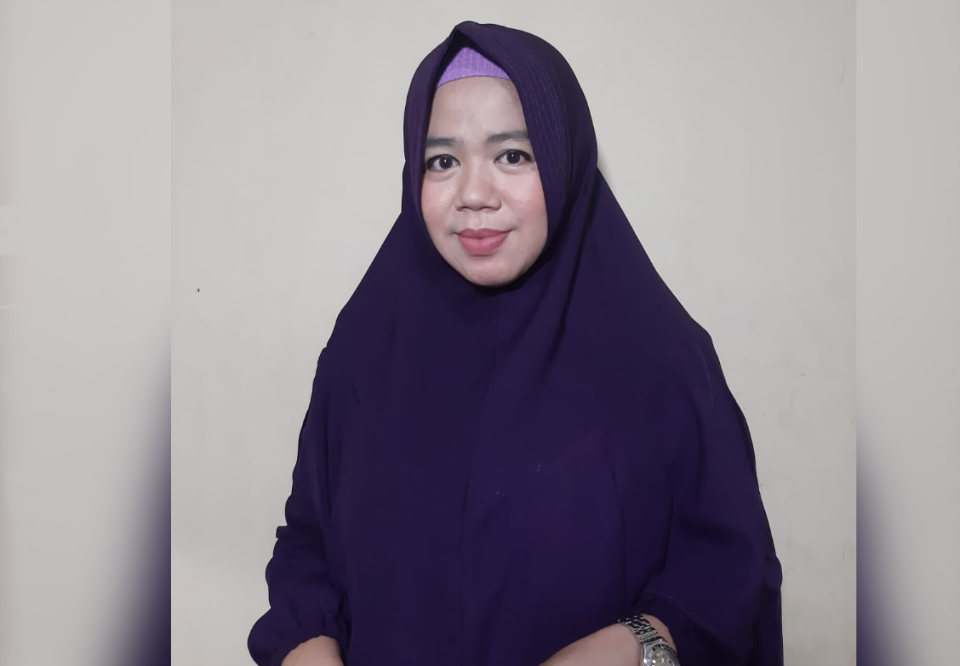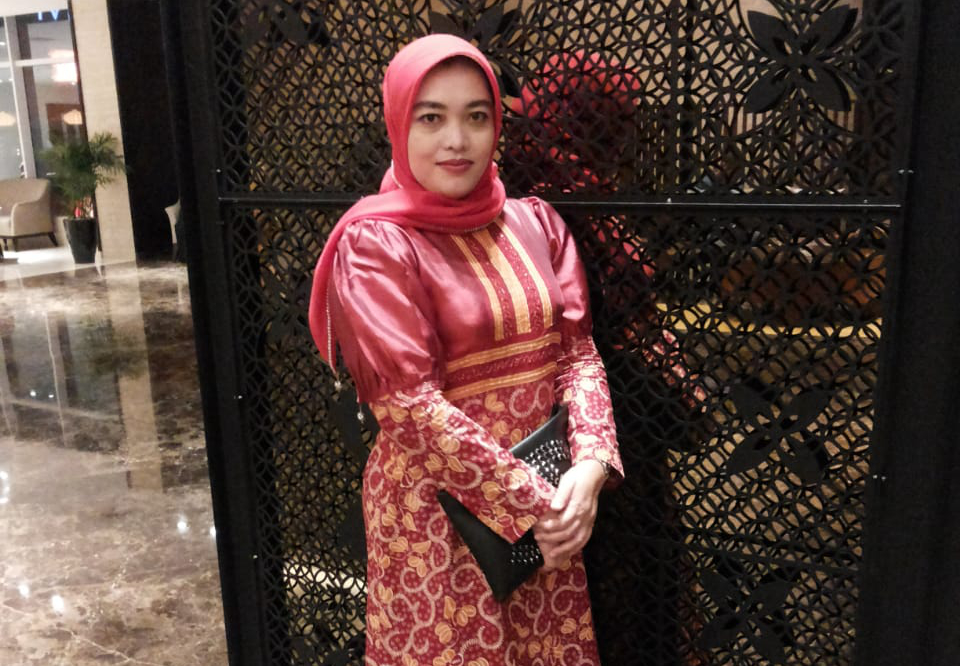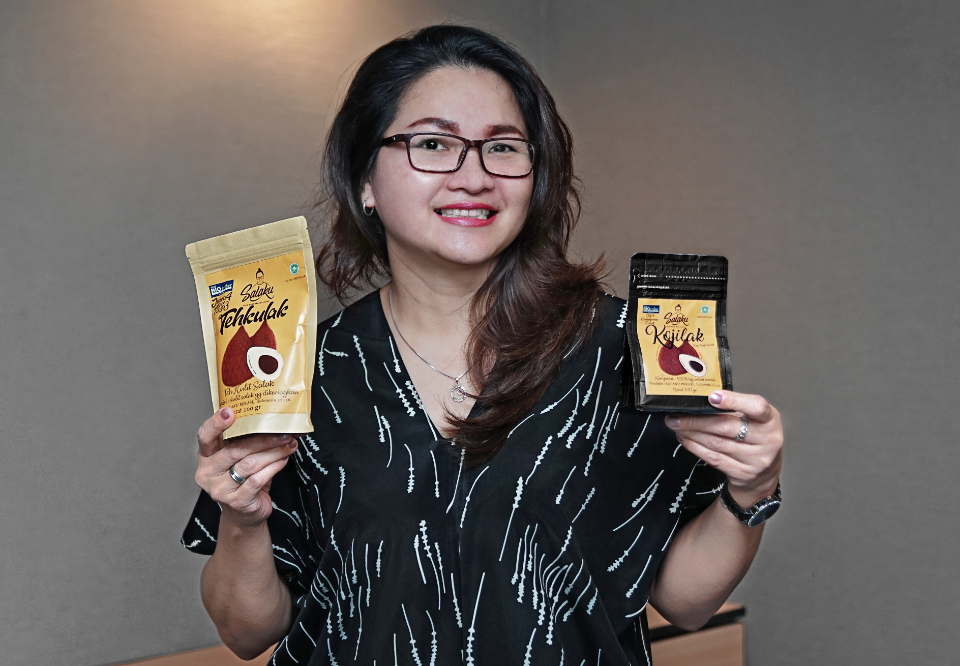With savvy honed in UN Women’s WeLearn training, female entrepreneurs in Indonesia keep their businesses afloat
Date:
Author: Giasinta Livia
Jakarta, Indonesia -- The commercial shutdown caused by the coronavirus pandemic has hit Indonesia’s smaller businesses especially hard. But some female entrepreneurs have survived -- and even prospered -- by using the savvy and skills they learned in a UN Women entrepreneurship training.
Micro, small and medium enterprises (MSMEs) depend on daily cash flow from sales of goods, but social distancing edicts in cities including Jakarta have forced owners to close up shops. The Ministry of Cooperatives and MSMEs said in mid-April that it had received reports that 56 per cent of 37,000 small and medium enterprises faced declining sales.
Women manage more than 64 per cent of registered MSMEs in Indonesia and 47 per cent of women over 15 work jobs closely related to the sector, such as in retail, restaurants, hospitality, industry and manufacturing, according to Central Bureau of Statistics figures of recent years.
UN Women spoke with three female entrepreneurs in the Jakarta area who participated in WeLearn, a UN Women project supported by Sunlight, a Unilever brand. WeLearn’s online and in-person trainings improve equal learning opportunities to empower women who want to start or grow their business. More than 4,900 women from micro and small enterprises have participated since the project started in October 2019.
Erna Sari, 38, owner of Ayam Penyet Bandung

Sari had to close all of her seven outlets selling ayam penyet, or Indonesian-styled fried chicken, in office and shopping mall canteens in Jakarta, and to temporarily lay off all her 12 workers.
“I was very close to giving up,” she said.
Sari texted one by one a long list of former customers and friends whose workplaces were still open, like factories and hospitals: Do you need catering services or an order of chicken? Only one place said yes.
Then, recalling her UN Women training on digital marketing, she registered as a merchant in two food delivery applications and also marketed on social media like WhatsApp, Instagram and Facebook, targeting people who order more food deliveries while stuck at home.
Now she is cooking, packaging, and contacting customers with help from her husband. They keep a calendar listing each other’s tasks. When it is time for her to cook, her husband takes care of the children, and vice versa.
Sari also is using her time at home to improve her business’s standard operating procedures.
“When my workers are back, I want them to feel that there is an improvement in our workplace,” she said. “Hopefully, they will be motivated and together our business could bounce back quickly.”
Indari Umiyasi, 47, owner of La Suntu Tastio

Before, Umiyasi sold her batik handbags and woven tote bags to banks and companies that gifted them to customers. But after the pandemic hit, she got not a single order.
One day, a hospital in Jakarta that once ordered her toiletry bags called: Could she supply personal protective equipment (PPE) for the health workers? Umiyasi and her 10 tailors had zero experience in making PPE or clothes, but she took it on.
“Since that day we received PPE orders, we have been working for almost 24 hours a day,“ she said. “We deliver it straight to the hospitals whenever we finish production, even if it is already 10 pm or 4 am. This is to guarantee that the health workers who are going to work on the next shift have protection.”
Umiyasi made her work known in a business network group, so she got more orders when companies and communities increased their donations of PPE for health workers.
“I believe producing PPE is my contribution to help Indonesia end the outbreak,” she said. “I always said to my tailors that we need to work tirelessly to protect doctors and nurses who are in the front line. If they are sick, who will help us if we fall ill?”
Shelly Ang 45, owner of Salaku

Ang founded Salaku in 2016 to invent new ways to enjoy snake fruit, a sweet and sour fruit encased in a reddish-brown scaly skin. She developed snake fruit tea, coffee, brownies, chili paste. Her main sales came from seasonal food bazaars.
Just before COVID-19 came, she signed on for a food bazaar where she expected to make a lot of sales -- then all the bazaars got shut.
So Ang adapted by inventing two new products: deep-fried chicken and duck dishes accompanied by Salaku’s signature snake fruit chili paste. She sold them through food delivery applications as ready-to-eat or frozen packages. Customers stockpiling frozen foods during the pandemic responded well.
Helping Ang build her business is her husband, who had been laid off by his company.
The pandemic made Ang realize the importance of prioritizing cash flow, as she had been taught in WeLearn training.
“Although my revenue decreases, ensuring that money keeps flowing in is very important,” she said. “If I do not have enough cash to carry me through this time, chances for my business to survive will be smaller.”